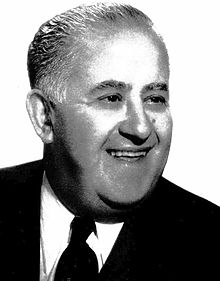Abdelkrim Dali est ne a Tlemcen en 1914 dans l'un des plus vieux quartiers de Tlemcen. A cette epoque, le seul enseignement concernant les enfants algeriens etant l'ecole Coranique, le petit Abdelkrim frequenta Djamaa Ech-Chorfa, mosquee situee a la rue Khaldoun. Deux annees plus tard, son oncle tenta de l'inscrire a l'ecole indigene 'Decieux'. Ce fut en vain, les autorites coloniales ayant decide autrement.
Le pere de Abdelkrim etait un patissier et souvent en contact direct avec les grands cheikhs de l'epoque tels Abdesslam Bensari, Cheikh Lazaar et d'autres auxquels le jeune Abdelkrim vouait une grande admiration. Son talent fut remarque par Abdesslam Bensari et c'est avec ce dernier qu'il fit, en public son entree dans le monde de la musique en tant que drabki. Il n'avait alors que 11 ans. Trois annees plus tard, Cheikh Omar Bekhchi fut son second maitre. Attire par ce jeune talent qui s'imposait deja , le cheikh a du prier son pere pour qu'il le lui confie. En effet, son pere, voulant lui faire apprendre un metier, l'engagea chez un coiffeur, Si Soulimane qui etait, par la force du destin, frequente par les plus grands cheikhs de Tlemcen, en particulier Cheikh Lazaar Dali-Yahia et Cheikh Omar Bekhchi qui impressionnaient fortement le jeune Abdelkrim . C'est ainsi que le contact avec son nouveau maitre fut etabli. Cette meme annee, avec son nouveau maitre, le jeune musicien a accompagne au tar la grande Maalma Yamna. A la demande de cette derniere qui animait une soiree, Abdelkrim Dali a eu l'honneur d'improviser un istikhbar. Cette grande dame de la musique fut eblouie de son savoir-faire et lui donna beaucoup de conseils car elle voyait deja en lui un futur cheikh.
Vint la mort de son pere. Jeune orphelin charge de famille, il trouva en son maitre cheikh Omar un deuxieme pere. Les soirees furent nombreuses et sans relache, en ete dans les mariages, en hiver dans les cafes.
Ses premiers enregistrements furent effectues entre 1929 et 1930 avec l'orchestre de Omar Bekhchi. Alors que sa premiere grande sortie, il la realisa avec la societe 'Andaloussia' en 1931, a Paris ou etait organisee une manifestation de musique andalouse, en tant que flutiste et chanteur. Maitrisant la derbouka, le tar et la flute, Abdelkrim voulut apprendre a jouer d'autres instruments tels le violon, la mandole et le luth. A partir de la, ce fut le grand depart.
Abdelkrim etait souvent sollicite par Cheikh Lazaar et Tetma qui lui fit connaitre Meriem Fekkai et Fadhela Dziria ainsi que Mohamed El Kourd qui fit, pendant un moment partie de l'orchestre de Omar Bekhchi. Il eut egalement des contacts avec Mohamed Bensmaine avec qui il fit des echanges culturels tres fructueux pour l'un comme pour l'autre.
En 1936, Radio Alger fit appel a lui pour un concert de chant. Avec Mahieddine Bachtarzi et Rachid Ksentini, il fit une serie de tournees a travers le territoire national. Radio Alger le sollicita si souvent qu'il dut, a contrecoeur, quitter Tlemcen sa ville natale. De 1947 jusqu'en 1956, il fit partie de l'orchestre de l'opera d'Alger (actuel TNA) dirige par Mahieddine Bachtarzi. Par la suite, en 1951, il enseigne l'Andalou a l'ecole communale de musique de Hussein Dey, et l'annee suivante c'est sa section qui est choisie pour representer l'Algerie a un concours international a St. Girons (France). Il fut prime et recut de chaleureuses felicitations du jury.
En 1957, cheikh Mohammed Fekhardji etant decede, un concours fut organise pour designer celui qui allait le remplacer au conservatoire. Parmi tous les candidats et devant un jury compose d'eminents musicologues francais, c'est Abdelkrim Dali qui fut elu.
A l'independance, en 1962, il organisa des concerts, et lors du festival de musique andalouse tenu a Tunis en aout 1964, il presenta le R'bab, symbole de l'ecole musicale Tlemcenienne.
Apprecions ces quelques conseils pleins de sagesse de sa part :
''Aujourd'hui notre art a triomphe sur notre terre natale, les jeunes aujourd'hui auront a present la tache plus aisee que ceux de ma generation. Notre musique est actuellement enseignee dans les conservatoires, les instituts, les ecoles etc... A ceux qui veulent apprendre la musique andalouse, je recommande d'acquerir un certain niveau de culture pour mieux apprehender les chants de la poesie arabe et le solfege, ainsi que les notions de base sur la musique, telles que rythmes et cadences, qui sont executes par la derbouka et le tar''.
Abdelkrim Dali est rappele a Dieu en 1978, creant un grand vide dans la culture musicale andalouse mais laissant egalement un enorme repertoire aux jeunes generations.
Mahieddine Bachtarzi
Mahieddine Bachtarzi, né le 15 décembre 1897 dans
la Casbah à Alger où il est mort le 6 février 1986, est un des principaux
artisans du théâtre algérien. Il fut aussi chanteur d'opéra (ténor), acteur,
auteur et directeur du TNA (opérad'Alger).
Biographie:
Comme la majorité des musiciens algériens de l'époque, il s'initia très
jeune au chant religieux où le seul instrument était la voix. Poursuit des
études coraniques à la Medersa libre de cheikh Ben Osman, à l’issue desquelles il
devient chantre à la mosquée Djemâa Djedid d'Alger et muezzin. Le
muphti Boukandoura, réputé pour son érudition et ses qualités de musicien, lui
révélera les premiers secrets d'interprétation des modes avant qu'Edmond Nathan
Yafil (1874-1928), l'élève et le disciple du célèbre Mohamed Ben Ali Sfindja, ne
le prît sous sa houlette et le détournât vers la musique profane.
Sa voix de
ténor était tellement fascinante que déjà, en 1921, il comptabilisait plus de
soixante-six disques enregistrés, sans compter le nombre impressionnant de
concerts donnés aussi bien en Algérie qu'en France, en Italie et en Belgique.
Surnommé Le Caruso du désert par la presse française à la suite à une réception
donnée au Quai d'Orsay. À partir de 1923, il assuma la direction de la fameuse
Société musicale EI-Moutribia et devint, à partir de 1930, le troisième
Maghrébin membre de la Société des auteurs et compositeurs de Musique de Paris
(Sacem), après Yafil et le Tunisien Mohamed Kadri. Toutefois, en intellectuel
éclairé, il réalise bien vite les limites de la musique en tant que moyen de
communication, dans le contexte colonial. Sans rompre totalement avec la
chanson, il se découvre une nouvelle vocation. Avec Allallou (1902-l992) et un
peu plus tard Rachid Ksentini (1887-1944), Mahieddine Bachtarzi déblaie le
terrain pour faire admettre l'existence d'un théâtre algérien en s'adressant aux
Algériens dans la langue qu'ils parlent, transposant sur la scène, à leur
intention, des récits légendaires ou populaires. C'est ainsi qu'il créera sa
propre troupe et tout en ayant l'évident souci didactique, il opta pour le genre
comique, adopta le style réaliste et entreprit la difficile tâche de se
réapproprier un patrimoine riche, mais dévasté par plus de cent ans de calamité
coloniale.
Après l'indépendance du pays, il assume la
direction du Conservatoire municipal d'Alger (1966-1974) et rédige ses Mémoires
parus chez la Sned, en trois volumes. Celte personnalité qui a marqué plus d'un
demi-siècle de vie culturelle, il demeure toujours l'interprète qui a le plus
œuvré à la musique arabo-andalouse d'Alger. Il obtiendra de nombreuses
distinctions honorifiques tout au long de sa vie, meurt le 6 février 1986 à
Alger, à l'âge de 88 ans. Après avoir reçu les palmes tunisienne (1929) et
marocaine (1962), chevalier du Ouissam et de commandeur du mérite humain décerné
par les autorités suisses pour sa contribution et le rôle qu’il a joué pour
faire connaître la culture et la musique algériennes. Son pays l'honore, à titre
posthume, le 21 mai 1992, en lui décernant la médaille de l'Ordre du Mérite
national.
Le théâtre national algérien (TNA) porte son nom.
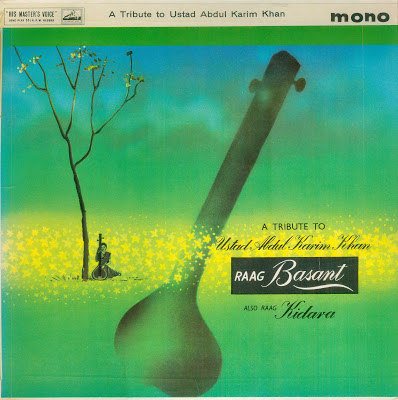
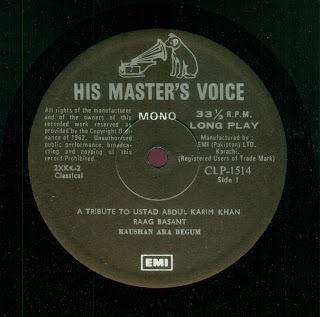
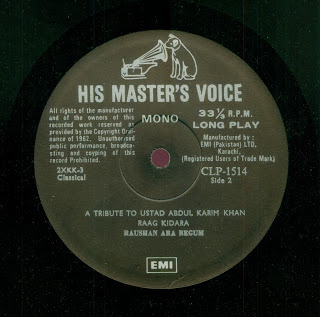
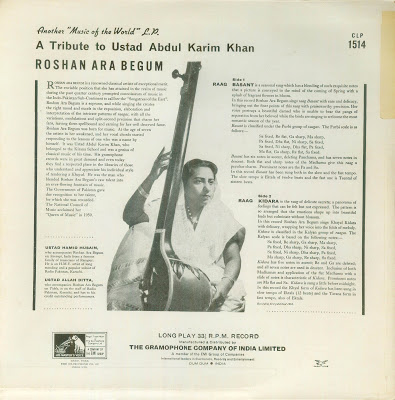
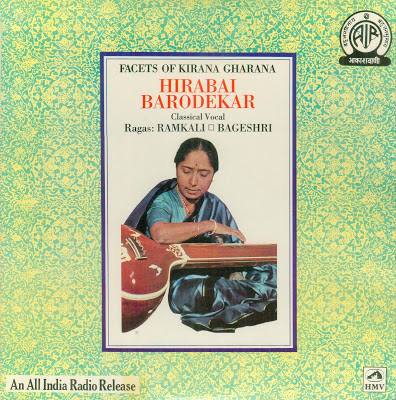
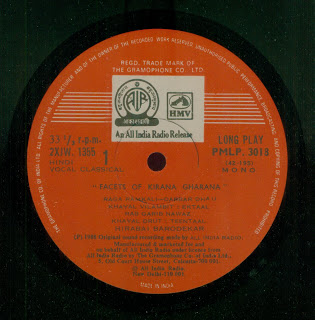
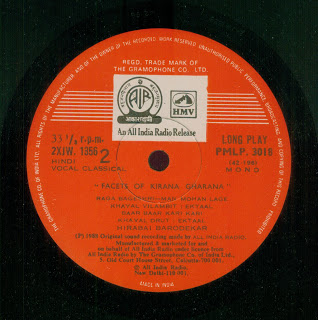
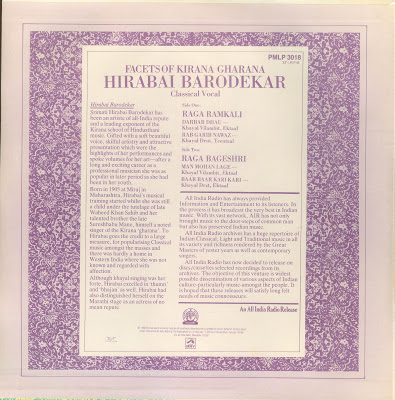
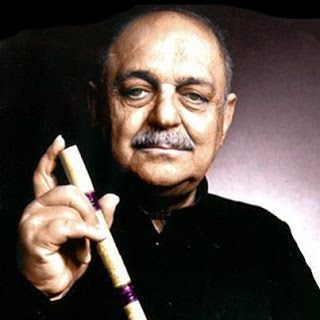
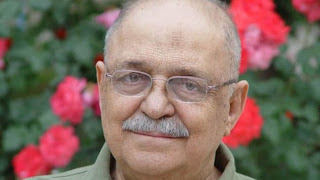
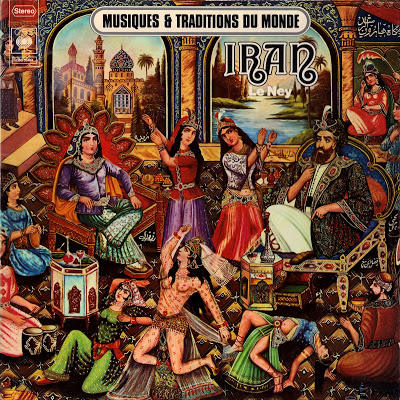
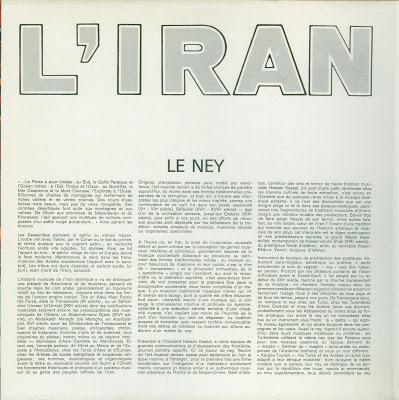
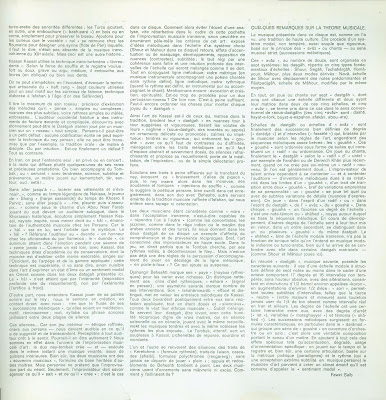
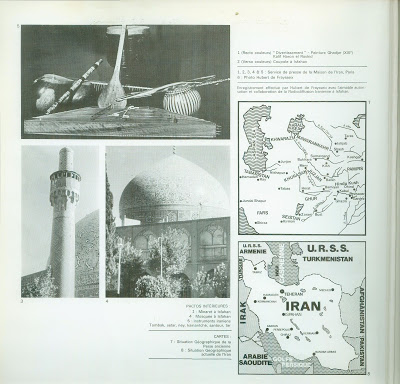
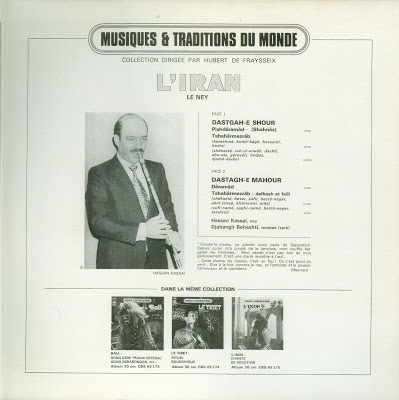
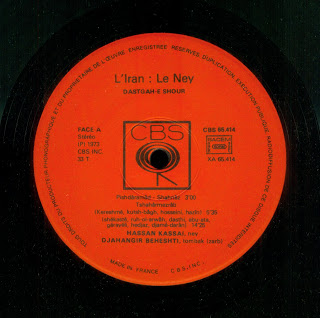
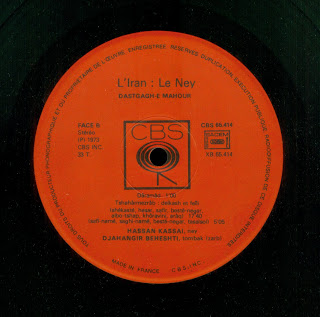
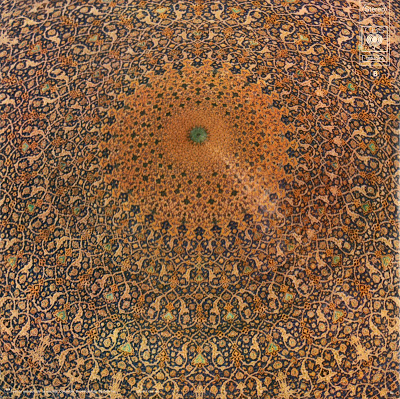
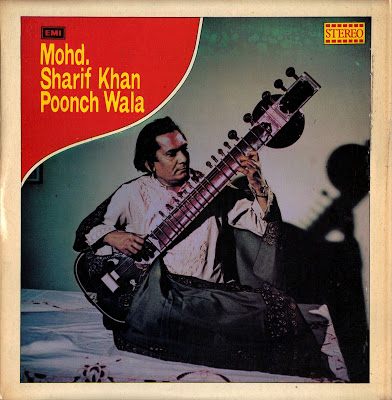
%20-%20label%201.jpg)
%20-%20label%202.jpg)
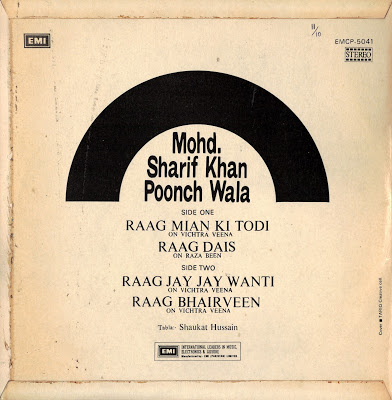
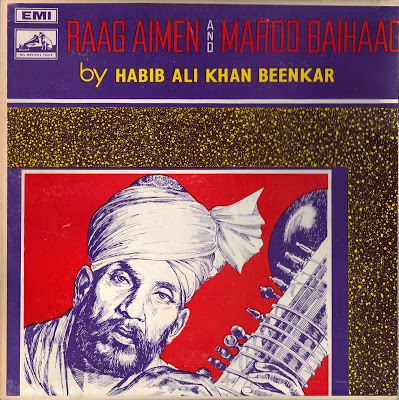
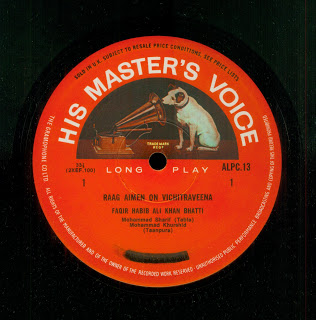
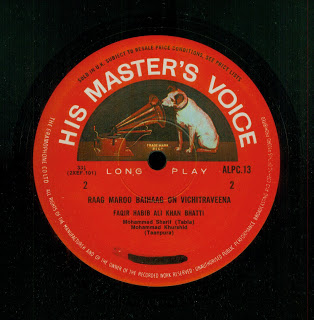
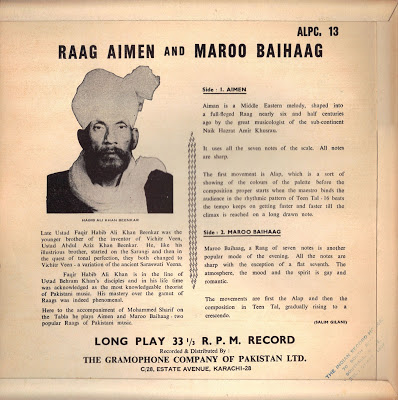


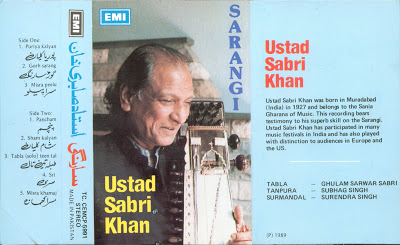
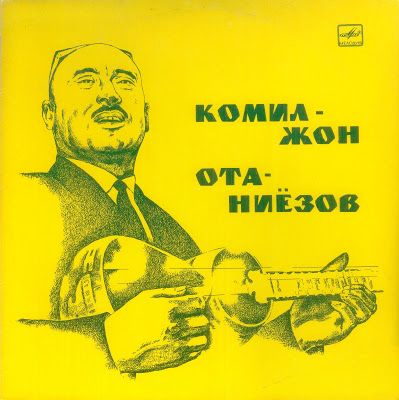
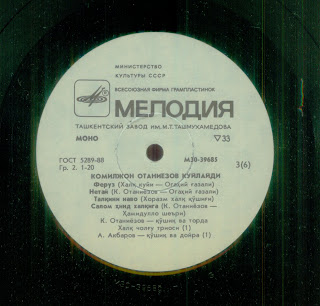
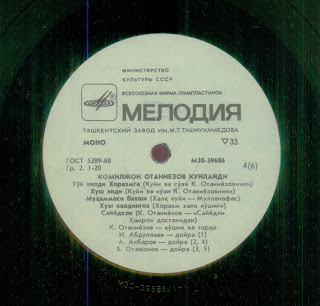
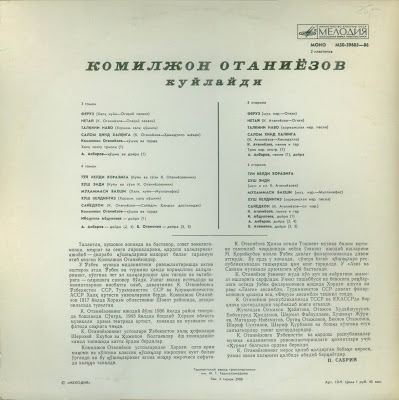
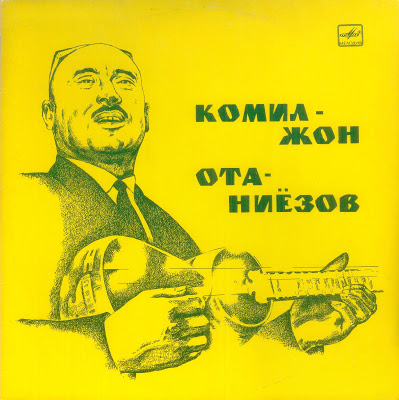
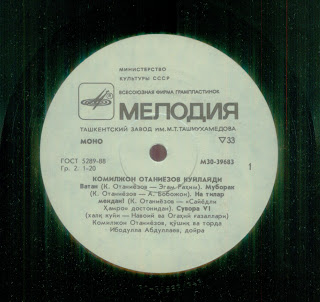
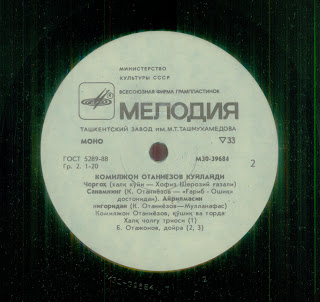
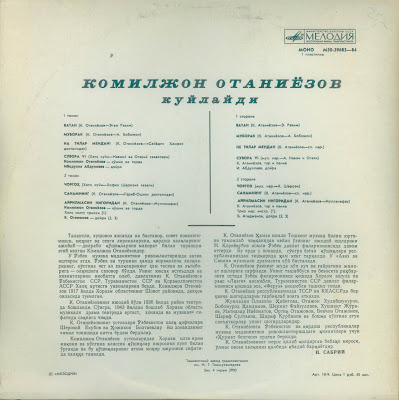
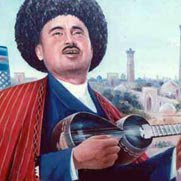
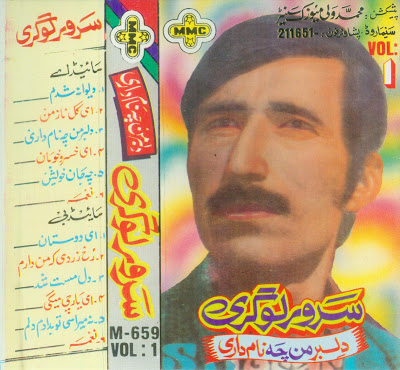
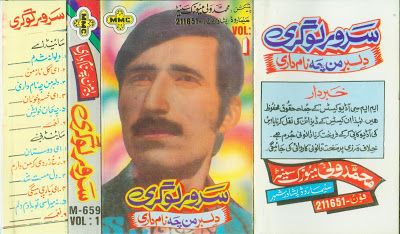
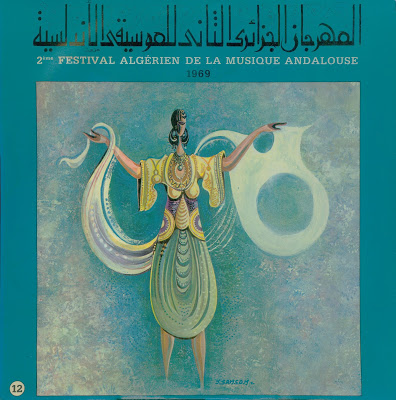
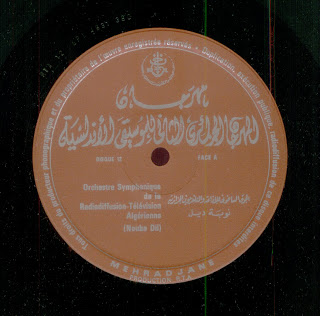
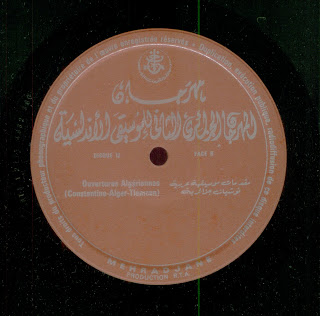
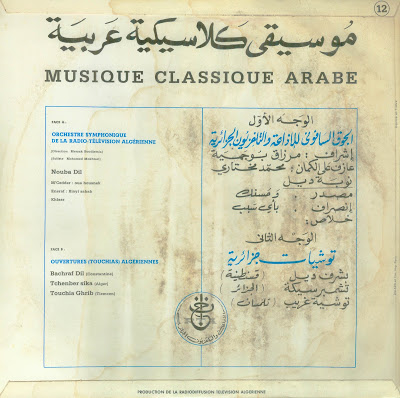
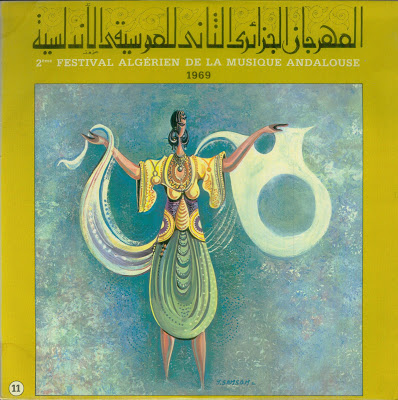
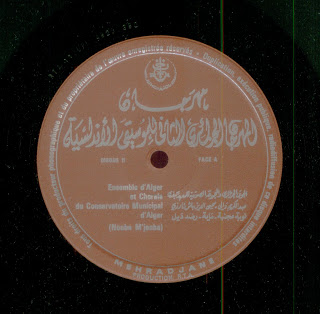
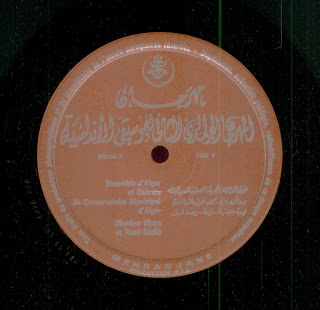
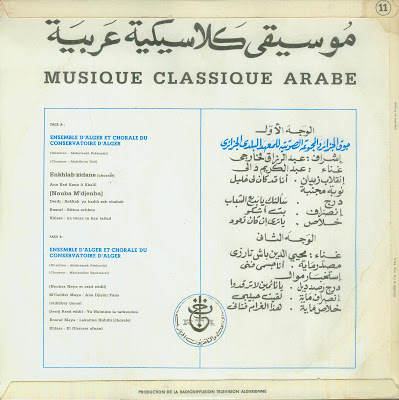
.jpg)
